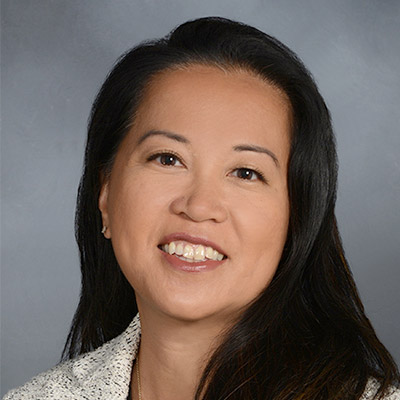In early 2023, Natalie Uy, MD, a leading pediatric nephrologist, was named as Chief of the Division of Pediatric Nephrology at NewYork-Presbyterian/
One of the biggest challenges in the study and treatment of pediatric kidney disease is its rarity. Unless centers band together to study acute and chronic renal diseases in children, it can be very hard to move the needle forward because the patient population is so small. In her new role, Dr. Uy plans to grow the dialysis and kidney transplant program, expand end-stage kidney disease care to neonates, fortify the bi-campus program with NewYork-Presbyterian/
A Commitment to Research
Dr. Uy first started exploring pediatric glomerular diseases during her time at NewYork-Presbyterian/
The most common form of kidney failure in children is due to congenital anomalies of the kidney and urinary tract, so being able to more easily diagnose genetic causes of kidney disease will help improve the treatment of children with chronic kidney disease
The two medical centers plan to establish a bi-campus center of excellence for pediatric chronic kidney disease (CKD), bolstered by a large CKD biorepository. "There's not as much research in CKD in children compared to adults because there are limited samples and limited populations," Dr. Uy adds. "Partnering with NewYork-Presbyterian/
Dr. Uy was one of the first investigators worldwide to discern the mechanisms underlying kidney injury in multisystem inflammatory syndrome in children, a rare condition associated with COVID-19 infection and has also co-authored articles in other leading peer-reviewed journals, including the New England Journal of Medicine, Journal of the American Society of Nephrology, Pediatric Nephrology, and Pediatric Transplantation.
Expanding Pediatric Nephrology Care
Expanding her work into other aspects of pediatric care, Dr. Uy is collaborating with the Level IV Neonatal Intensive Care Unit at the NewYork-Presbyterian Alexandra Cohen Hospital for Women and Newborns to implement kidney support. "One of the most challenging aspects of pediatric nephrology is performing renal replacement therapy in neonates and infants. We're working together with our NICU colleagues to improve our capability to provide renal replacement therapy using newer dialysis machines dedicated to newborns," she says. "There are not many centers which can offer these services because it is such a unique population."
[NewYork-Presbyterian/
Weill Cornell] is working together with our NICU colleagues to improve our capability to provide renal replacement therapy using newer dialysis machines dedicated to newborns. There are not many centers which can offer these services because it is such a unique population.
Dr. Uy is excited about the future opportunities this new role affords. “There is a big opportunity to expand the program for infants and children, especially treatment for pediatric end-stage kidney disease, including dialysis capabilities for the smallest patients in the intensive care unit and kidney transplantation,” she says. “Integrating programs and services across institutions is essential for smaller sub-specialties like pediatric nephrology.”



